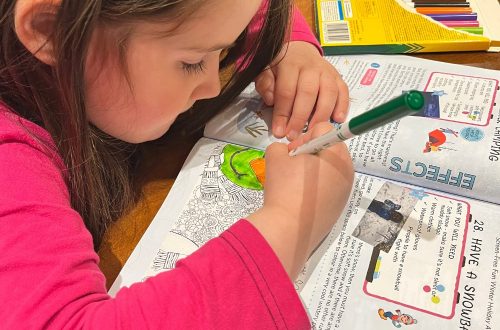
Practical Parenting Tips for Everyday Health Concerns
This is a collaborative post
As parents, our goal is to guide, protect, and nurture our children at every stage of their life. But it’s not always an easy and smooth path. As our children grow and develop, they display unwanted behaviours.
Your choices begin even before the birth of your child. Parenting seems to be a series of choices, from what to feed your child to how you keep them healthy.
The decisions you make regarding your child’s health will have a lasting impact on their life. In this article, I will give you some parenting tips for everyday health concerns.

8 Practical Parenting Tips for Everyday Health Concerns
1. Keep active
Children should be active for one hour a day, doing something that raises their heart rate. There are many activities that your family can enjoy together, even if you have limited places to go for exercise. For example, your family could do a virtual class or impromptu dance competition. It’s okay to exercise outdoors with your family as long as you keep a distance of six feet.
2. Offer a variety of activities
If your child is bored, they will be more likely to misbehave. So, provide them with a variety of indoor and outdoor activities such as games, puzzles, science projects, nature hikes, blanket tents, etc.
3. Focus on a nutritious diet
Health is mostly dependent on food habits. You should focus on a well-balanced diet to keep your child healthy. Unbalanced eating can lead to obesity, diabetes, and heart disease later in life.
Here are some foods you can include in your child’s diet:
- Fruits and vegetables
- Whole grains
- Lean meat cuts
- Fresh fish
- Poultry
- After age 2, you can start eating fat-free and low-fat dairy products
- Beans and leafy vegetables are rich in fiber
Avoid foods and beverages that contain high levels of:
- Trans fats or saturated fats
- Sodium (salt)
- Sugar
Nearly every child should get enough vitamins — A, B, C, D, etc. The foods that they eat each day should provide them with plenty of vitamins.
4. Drink enough water.
Staying hydrated will keep your kids away from everyday health concerns. The water you drink can also have a positive impact on your health, energy, and brain function. It can be difficult to remind your children to drink more water with all the things going on. Try these creative ways to encourage them to do so:
- Use a silly straw
- Add fun shapes to the water and freeze it.
- Include more fruits and vegetables in your diet
- Water with fruit pieces or juice splashed in it
5. Safety and Prevention
Provide a safe environment for children and educate them about the dangers. But it is natural that your child may come with a wound when playing. In this situation, don’t panic and give foam dressing to your kid. It is a very adaptable dressing that provides a cushion effect and ensures that you are up-to-date to prevent serious infectious diseases.
6. Get enough sleep and follow a routine at bedtime.
Sleep is essential for all, but it is especially important for children’s health. As your children are processing their day, bedtime is a good time to make emotional connections with them.
It is essential to get enough sleep to have enough energy to be able to focus throughout the day. Try going to bed earlier if you or your children are having trouble. Regular bedtime routines can help you sleep better.
7. Limit screen time
While it’s important for your kids to be aware of what’s happening in the world, too much time spent on social media and watching television can cause stress and anxiety.
Even though your children may have to use the technology more often than normal for distance learning, you can break up their screen time by including small blocks of other activities.
8. Prevention is important, such as regular handwashing.
Hand hygiene is one of the most effective ways to prevent disease and minimize the spread of germs. Other preventive medicine tips, such as:
- Coughing, sneezing, or sneezing on your sleeve
- Cleaning frequently touched surfaces at home
- Regular screenings and vaccinations
Final thought
When you are raising a child, you have to consider many decisions and factors. These can include ensuring good nutrition, encouraging physical activity, and promoting mental health.
You may feel that you need to always make the best choice for your child’s well-being, but this can cause unnecessary stress or pressure.
Try to frame it in such a way that you are aiming to give your child the best choice possible for a particular situation.





